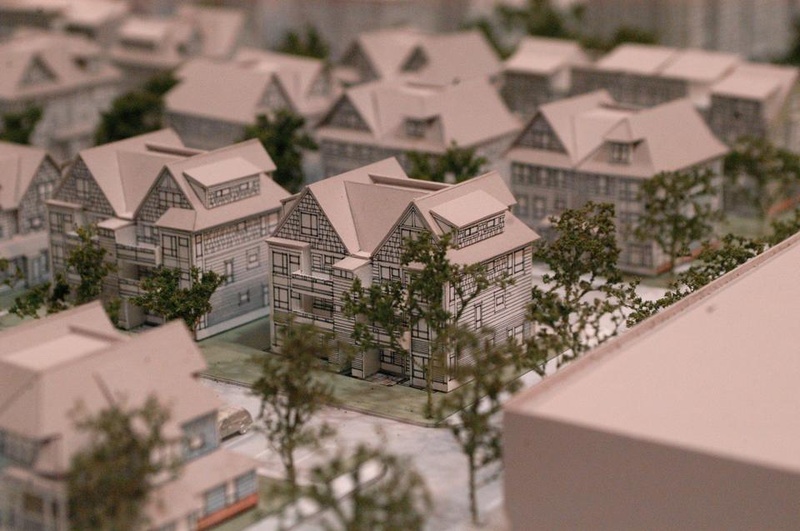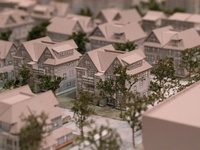For those North Allston residents who hoped to see their neighborhood revitalized by the expansion of Harvard’s campus, the past few weeks have not brought the desired holiday tidings.
Early last month, Harvard President Drew G. Faust announced that the University would indefinitely halt construction on the Allston Science Complex in the early spring due to financial constraints. The roughly $1 billion project represents the first component of Harvard’s ambitious 50-year plan to construct an extension of its campus across the Charles River.
A week later, the Boston Redevelopment Authority approved after much debate a plan to relocate the Charlesview Apartment complex—a concrete cluster of 213 low-income housing units located near the Business School—into the heart of North Allston as part of a land swap agreement between Harvard and the Charlesview Board of Directors. The plan, which received approval from Boston’s Zoning Commission last week, has long been the subject of impassioned community discussions and has endured heated criticism from some neighborhood residents.
While these developments might appear to be momentous defeats for community activists, others find themselves optimistic and buoyed by Harvard’s plans for the community in the coming months. University planners said that they are redoubling their efforts to find tenants for vacant Harvard-owned properties in Allston—in fact, Harvard recently opened a free indoor ice skating rink in the area—and certainly, some residents said they are more confident now about the fate of their neighborhood than they have been for many years.
A TOUGH MONTH FOR ALLSTON
Multimedia
In early December, Faust sent a letter to the Harvard community stating that the University would halt construction of the Allston Science Complex, which for years has been touted as a hub for interdisciplinary research and a cornerstone of Harvard’s future campus across the river. The decision, Faust wrote, resulted from the “altered financial landscape of the University, and the wider world.”
The news did not come without warning: Harvard announced last February that it would slow construction in Allston while it examined alternative options for phasing and development. But while residents said that they were not shocked by the news of the construction freeze, they were certainly not pleased.
“It was no surprise because [Faust] had been preparing us for it over the last year, so it was a formalization of that, and I think we all knew it,” said longtime Allston resident Tim McHale. “My overall reaction is that I feel sorry that it can’t move forward both for Harvard and for the community.”
The announcement that the BRA had approved the relocation of the Charlesview Apartments elicited similar reactions from Allston residents. After a long struggle to have their voices heard, the ending has been disappointing for many.
The plan to relocate Charlesview had been informally proposed by Harvard officials in 2003 and materialized into an agreement with Charlesview officials in 2007. But the plan languished as it underwent continuous revisions and community input meetings, and a vocal contingent of community leaders had criticized the plan, suggesting that the project would create an income-segregated North Allston neighborhood.
The critiques raised by residents led to a series of redesigns by architects hired by the Charlesview Board, and the final amendments to the plan were presented to the community just a week before the BRA first reviewed the plan for approval in December. The changes aimed to reduce the density of the apartment complex and respect the aesthetics of the neighborhood, and also included more retail space along Western Ave.
Despite such efforts, many Allston residents thought the plan could have seen further improvement. At the final community input meeting in December, McHale and other Allston residents proposed a ten-point plan to improve the design, which included allowing space for backyards in the housing units and moving a nearby McDonald’s to make room for a more attractive plaza on Western Avenue. The residents wanted “more of a neighborhood feel,” McHale had said at the meeting.
But the BRA approved the plan last month without those changes—a move that residents said they found disappointing but not surprising.
Allston-Brighton Task Force Member and Allston resident Bruce E. Houghton took a more moderate view, emphasizing his “disappointment that there wasn’t greater improvement in the site itself.”
But McHale said he hoped that the BRA would be amenable to discussing some of his proposed amendments to the plan.
Read more in News
Students Develop Harvard Craigslist














